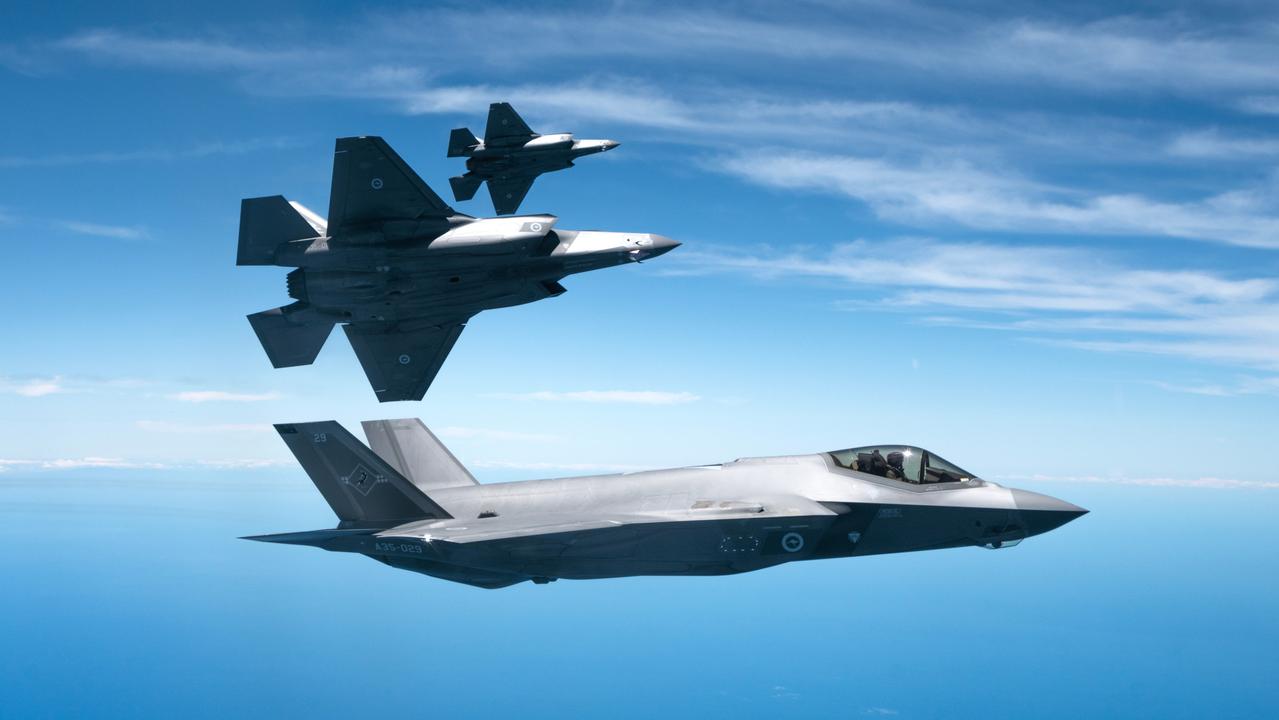Engaging with media will clear air on ‘conventional wisdom’ thinking
Defence must defend, justify and explain the capabilities it says it needs, not leaving the conventional wisdom to stand as the truth.

“Conventional wisdom” is something we’re all blessed with. The conventional wisdom says Australian taxpayers aren’t getting value for the billions of dollars they spend on defence equipment.
It tells us that the Collins-class submarine is a “dud sub” – noisy, unreliable and unfit for purpose. It also tells us that the F-35A Lightning II is slow, overweight, unable to win a dogfight and not really stealthy. And the conventional wisdom about the Army’s armoured vehicles is that they’ll be utterly irrelevant in any regional conflict.
Oh, and it says that AUKUS will be a waste of time and money and will undermine Australia’s sovereignty.
Sadly, these opinions, once expressed, are extremely difficult to change. And many officials and officers at the Department of Defence argue that public opinion doesn’t really matter because they know what’s really happening, and they’ll tell the ministers – who come and go at some speed – what’s really happening, and everything will be fine. During the relatively dull times of peace and stability we enjoyed for much of the past half century that was fine. The system stumbled and bumbled and sometimes wasted vast amounts of taxpayer’s money, but officials meant well and the stakes weren’t existential. Now, with a vastly improved Chinese military, and a Chinese leadership that seems quite happy to be belligerent and threatening, that is no longer the case.
In the wake of the Defence Strategic Review (DSR), and as Australia commits to the vast cost of Virginia-class and SSN-AUKUS nuclear-powered attack submarines, the public will be watching and expecting to learn in some detail what their money is buying and how well it is being spent.
Defence must defend, justify and explain the capabilities it says it needs, not leaving the conventional wisdom – which might be uninformed commentary or malicious criticism – to stand as the truth in the minds of voters, taxpayers and other key elements of Australian society.
Modern weapons – especially the incredibly complex and expensive nuclear-powered submarines to be acquired under AUKUS – will require detailed coverage so the Australian public and China and Australia’s allies understand what is happening and why.
The mainstream media mostly lacks the specialist expertise to report on complex technologies or strategic issues accurately or with context. That makes it easy for the conventional wisdom to become distorted beyond all recognition.
One top of that, Defence’s unwillingness to engage publicly also means allies and potential adversaries are not being signalled accurately, raising the chances of miscalculation.
Defence must commit to the deliberate, long-term release of unclassified information and information that is not ‘commercial in confidence’
The consequences of Defence’s silence on important strategic and equipment issues are twofold. First, the public loses confidence in Defence’s powers to make good decisions; second, if the situation continues, the public loses confidence in the government’s ability to both make good decisions and rectify the consequences of bad decisions.
Loss of public confidence in the government and a key department is damaging, both to the government of the day and, more generally, to Australia’s democratic processes and system of government.
So how can, or should, Defence improve its engagement with its citizens, allies and strategic competitors?
Defence must commit to the deliberate, long-term release of unclassified information and information that is not “commercial in confidence”; and it must acknowledge that Defence’s secretive and defensive mindset rarely, if ever, delivers an accurate or honest answer to the question actually asked.
Compare Canberra with Washington DC, the capital of our closest ally: trusted journalists have offices in the Pentagon and are allowed access to all unclassified areas of the building. Specialty reporters are briefed regularly – and on request – about new policies and technologies to ensure they understand them and can accurately tell the public and US Congress what is happening. Press briefings are held regularly; the major ones on operations and important policy issues are often televised.
Of course, information is still classified or protected, but American citizens, policymakers, allies and competitors are signalled clearly and effectively, leaving less room for miscalculation and ensuring that the government meets its ethical and moral duties to inform the public.
This also means contractors find it much more difficult to evade responsibility for any failure to deliver on their contractual obligations.
Defence must take the time to brief the media regularly on key issues, perhaps under the Chatham House Rule – one may report what was said, but not who said it.
Where necessary, Defence can also deliver a classified background briefing to selected journalists – not necessarily for publication, but to inform their public reporting of issues and events. The bottom line is this: Defence’s refusal to engage in the public debate or with the media has resulted in a stifling of accurate reporting on defence issues and projects.
Defence needs to keep lots of things secret. Everybody gets that. But in trying pointlessly to keep everything secret Defence has itself become incredibly secretive and utterly unwilling to engage with a media that it increasingly needs. The result is that, by default, the conventional wisdom on Australia’s defence is now being defined by the department’s critics.
Governments and their great departments of state – and especially Defence at this time – have a duty to engage.
-
Dr Gregor Ferguson is a former editor of Australian Defence Magazine and former Australian correspondent for Defense News in Washington. Colin Clark is the Sydney-based Indo-Pacific correspondent for Breaking Defense and the former editor of Defense News. This is an edited version of a submission the authors made to the Defence Strategic Review.


